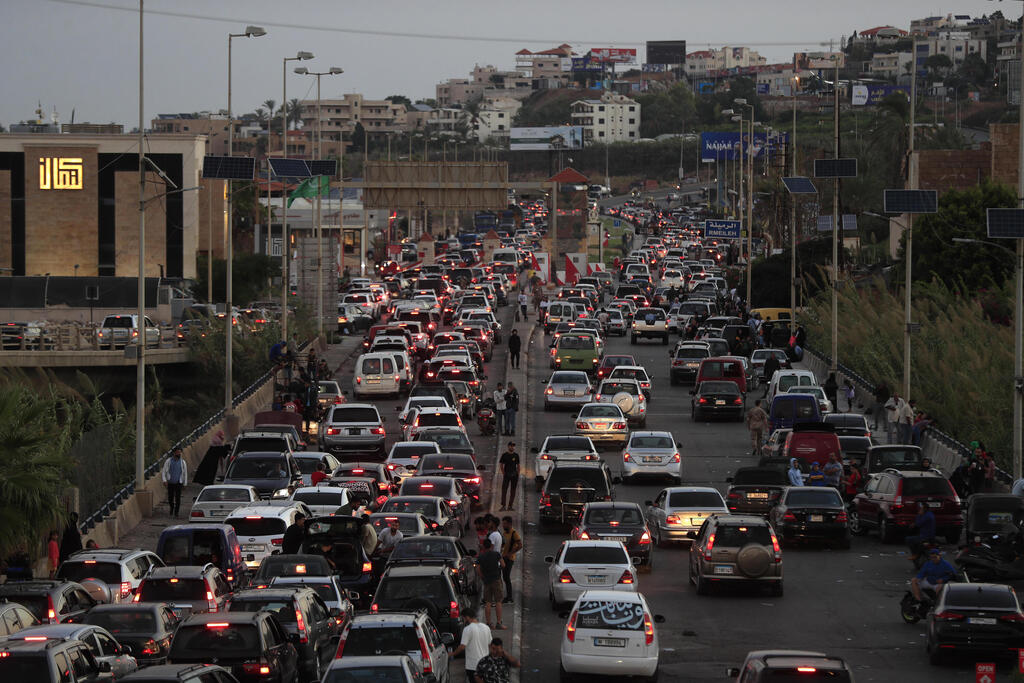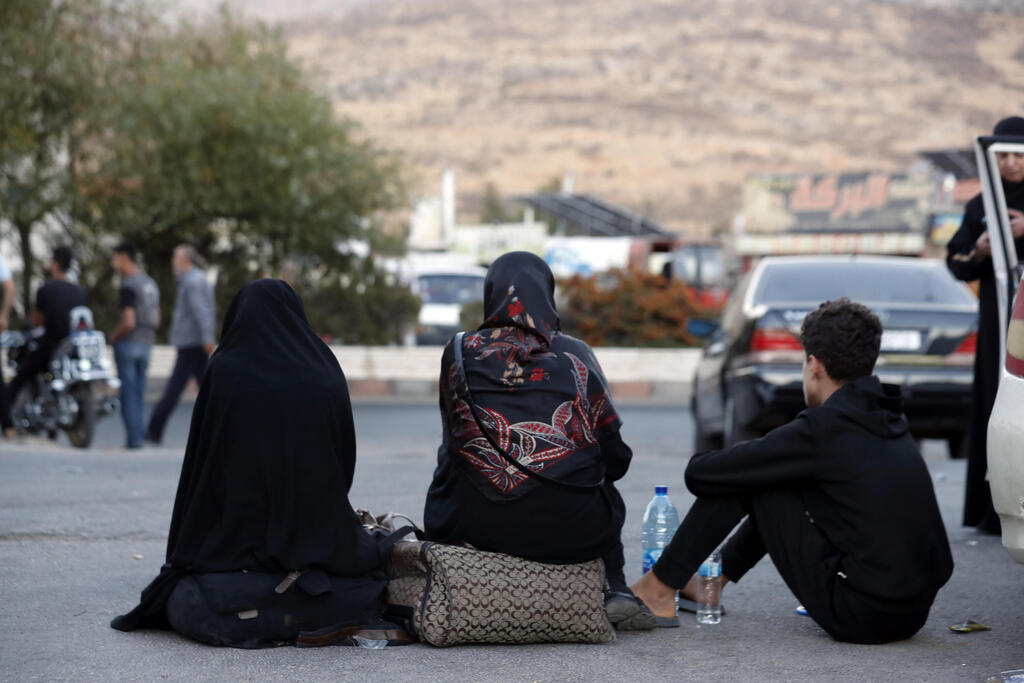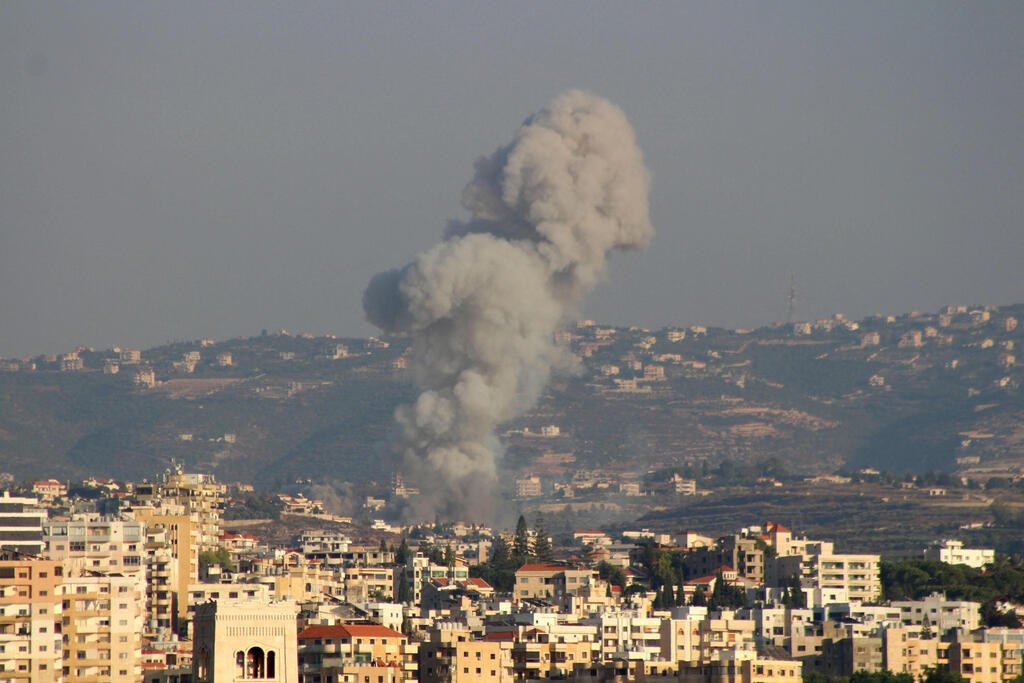Getting your Trinity Audio player ready...
Thousands of Lebanese civilians are fleeing combat zones in southern Lebanon as the IDF continues extensive airstrikes on the second day of Operation Northern Arrows. The evacuations follow Israeli warnings for civilians to leave areas where weapons were allegedly being stored by Hezbollah.
Arab media outlets reported scenes of residents escaping under fire, enduring difficult road conditions and seeking refuge in schools converted into shelters.
4 View gallery


Displaced Lebanese flee south, head to Beirut amid escalating hostilities
(Photo: Ibrahim AMRO / AFP)
On Monday, the first day of the IDF’s precision strikes, 558 people were reportedly killed, the highest single-day toll in Lebanon since the civil war over 30 years ago. The Lebanese newspaper An-Nahar published an extensive report on the displaced, titled “The Journey of Escape from Death.”
One woman displaced from her home in southern Lebanon described her journey to Beirut, saying, “Missiles were falling in front of us, behind us and on both sides. For four hours, we could not leave the house. We saw houses collapse on their occupants. We left for Beirut at 10 a.m. and arrived the next day at 7 a.m. due to heavy traffic. There was no food or drink on the way, everyone was in the same difficult situation." She said that the Israeli attacks "forced me, and thousands of families, to leave their homes instead of staying in place and dying."
Massive traffic jams in Lebanon
(Video: Reuters)
Another displaced woman said: "We were at home when we heard the attacks around us. We woke up in the morning and discovered that the house was shaking from the force of the rockets and attacks in the area. We left the house and hid under the trees. Then we packed our suitcases and left for Beirut without knowing where we're going. We arrived at a school in Beirut until we know what fate has for us."
A displaced person who fled from Nabatieh in southern Lebanon said, "The attacks came closer to our house so we had to leave because there are children at home. If there were no children we would not have left. We do not have the financial ability to rent an apartment, so we came to a school to take shelter."
Another displaced person from the village of Ain Qana said, "A missile exploded a few meters from me. We took the children and drove to Beirut. There was heavy traffic for eight hours on the road."
Saudi daily Asharq Al-Awsat shared similar stories of families making treacherous journeys lasting up to 16 hours. Many used any available transportation, including tractors and trucks, as they fled northward. A displaced person from the town of Shaitieh recounted his car breaking down, forcing him to spend the night in Zahrani before continuing his journey. “It’s better to die on the road than in a place subject to dozens of attacks every day,” he said.
Schools in Beirut and other cities have been turned into makeshift shelters as tens of thousands seek refuge. According to UN reports, about 6,000 people have crossed into Syria, and thousands more remain on the move within Lebanon. Volunteers at Bir Hassan Technical College in southern Beirut have been working tirelessly to provide food, water and medicine to those in need.
Rami Najam, a representative of the Shiite Amal movement, which is taking an active part in fighting against Israel, said, "In the beginning there were only a few families, by 5 p.m. we had 30 families."
Lebanon’s Health Minister reported at least 569 fatalities and over 5,000 injuries since the escalation began on Monday.
Hezbollah confirmed the death of its missile commander, Ibrahim Qubaisi, in an Israeli airstrike in Beirut’s Dahieh district. Israeli officials said that Qubaisi, who oversaw missile units targeting Israel, became the group’s top military leader after recent high-profile assassinations.








